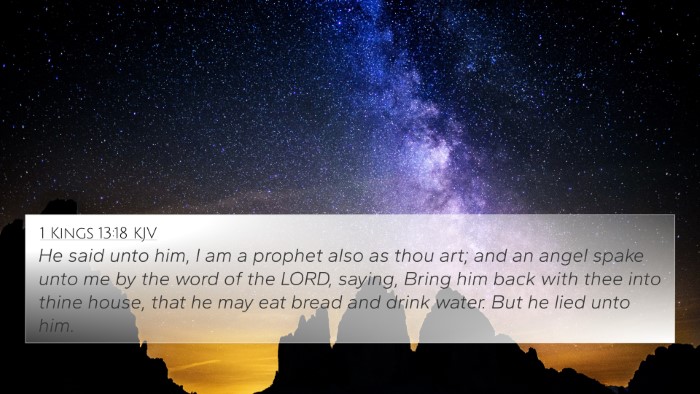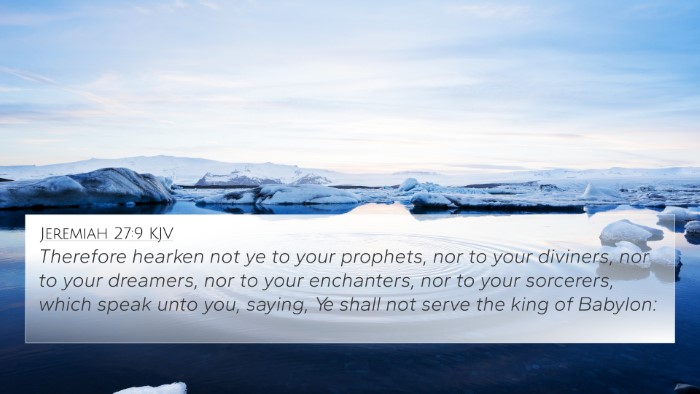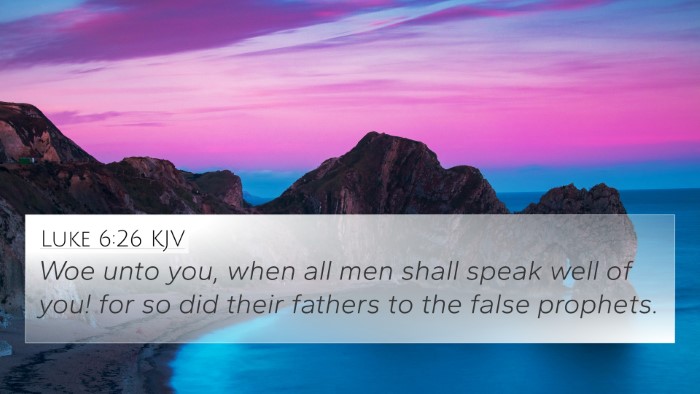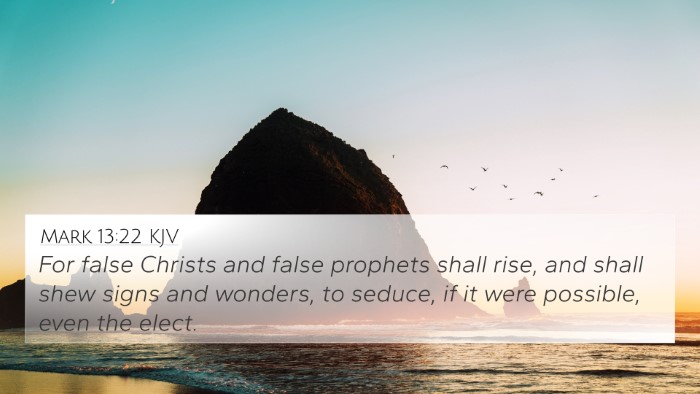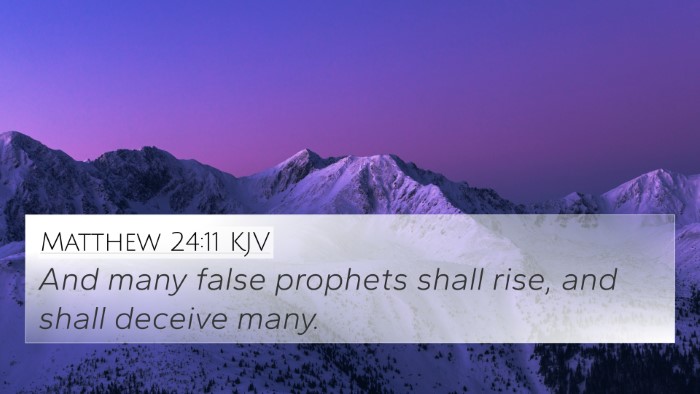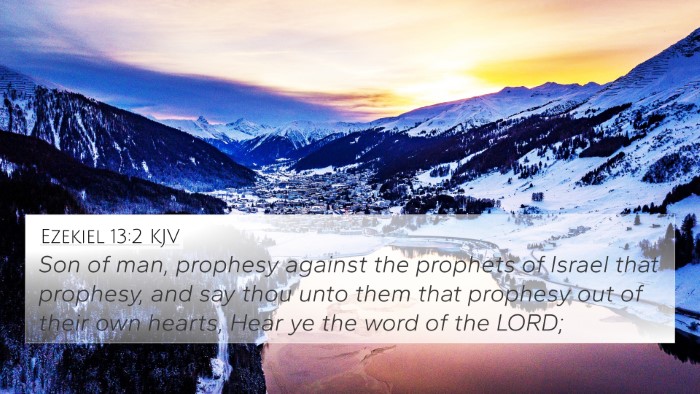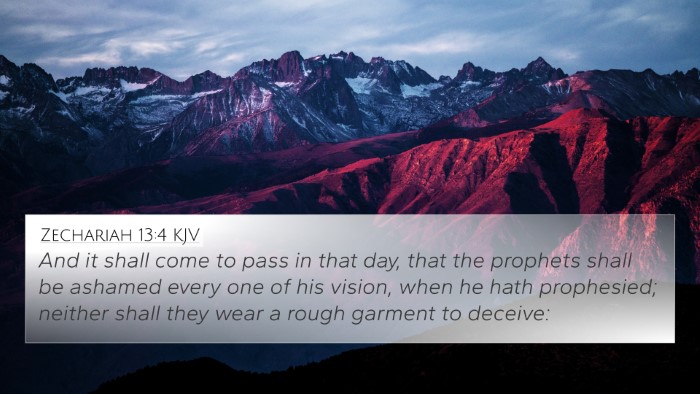Understanding Deuteronomy 13:1
Deuteronomy 13:1 states: "If there arise among you a prophet, or a dreamer of dreams, and giveth thee a sign or a wonder," which addresses the issue of prophecy and divine signs within the community of Israel. This verse highlights the importance of discerning true prophecy from falsehoods, a vital theme in both the Old and New Testaments.
Interpretation of the Verse
The central message of Deuteronomy 13:1 can be summarized as follows:
- Warning Against Deception: The verse warns the Israelites of the potential for deception through false prophets and dreamers, who may perform signs and wonders.
- Divine Testing: It presents the idea that God permits such trials to test the faith and fidelity of His people to His commandments.
- Call for Discernment: Believers are encouraged to exercise wisdom and discernment when faced with miraculous claims or prophetic messages.
Insights from Public Domain Commentaries
Matthew Henry's Commentary
Matthew Henry notes that this passage serves as a significant warning for God's people against the susceptibility to false teachings. He highlights how the appearance of a prophet, with the provision of signs, is not inherently a guarantee of authenticity. His reflections suggest that the contents of the prophecy must align with prior divine revelation and commandments.
Albert Barnes' Notes
Albert Barnes elaborates on the context where such prophets may arise and explains that the signs they perform can be genuine events, yet they can lead the people away from Scripture. Barnes emphasizes that adherence to God's commandments is the ultimate measure of a prophet's truthfulness.
Adam Clarke's Commentary
Adam Clarke interprets the verse by stressing the need for vigilance in the faith community. He discusses the broader implications of accepting signs or wonders without thorough examination of the prophet's teachings or objectives, asserting that fidelity to God must come before the allure of miraculous acts.
Cross-References to Deuteronomy 13:1
To deepen the understanding of Deuteronomy 13:1, here are some related Bible verses that form a web of theological connections:
- Jeremiah 14:14 - Discusses false prophets and visions that may contradict God's actual revelations.
- Matthew 24:24 - Warns of false prophets and messiahs who show great signs and wonders to deceive if possible.
- 1 John 4:1 - Encourages believers to test the spirits to see whether they are from God, emphasizing the necessity of discernment.
- Acts 20:29-30 - Paul warns the early Church of fierce wolves who will arise and distort the truth.
- Deuteronomy 18:20-22 - Provides guidelines on discerning true and false prophets based on the accuracy of their predictions.
- Galatians 1:8 - Paul warns against any gospel contrary to what was preached, pointing toward the importance of doctrinal purity.
- 2 Corinthians 11:13-14 - Identifies false apostles masquerading as workers of righteousness.
Thematic Connections
Deuteronomy 13:1 offers thematic connections that resonate throughout Scripture:
- Divine Authority: The necessity of submitting to God’s established order and rejecting any authority that contradicts His will.
- Faithfulness to God's Word: A recurring theme where believers are called to remain steadfast in the teachings of Scripture, as seen in the teachings of both Old and New Testaments.
- The Nature of True Prophecy: Understanding the conditions and characteristics that define a true prophet and prophecy throughout Scripture.
Application in Christian Living
In applying the message of Deuteronomy 13:1 to contemporary Christian living, consider the following:
- Discernment in Spiritual Leadership: Individuals must critically evaluate the teachings they encounter, comparing them against the Scriptures.
- Commitment to Scripture: Regular engagement with the Bible is essential for recognizing truth and exposing falsehoods.
- Community Accountability: Believers should support each other in healthy discussions to understand and uphold Bible truths.
Conclusion
Deuteronomy 13:1 serves as a poignant reminder that the journey of faith requires vigilance and discernment. By understanding the implications of this verse and cross-referencing it with other scriptural writings, believers can enrich their faith and protect themselves from deception.
Further Study on Cross-Referencing
For those interested in exploring cross-referencing Biblical texts, a variety of tools and resources can aid in linking Bible scriptures effectively:
- Utilizing a Bible concordance for word studies.
- Employing a Bible cross-reference guide to uncover relationships between verses.
- Engaging in cross-reference Bible study to deepen understanding of themes.
Being intentional in cross-referencing Bible study methods can greatly enhance one’s ability to build upon the rich tapestry of God’s Word.





